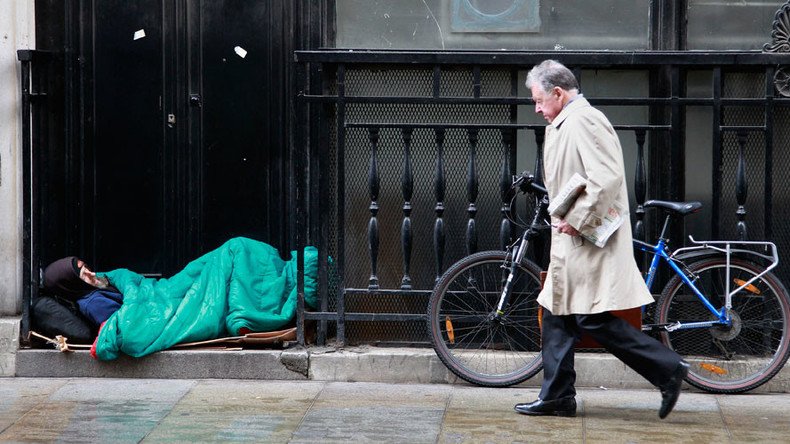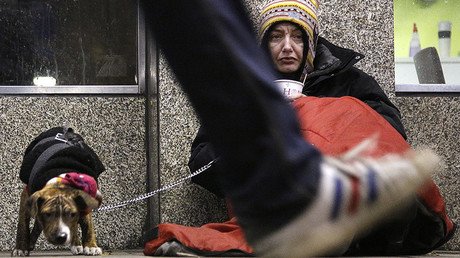Homelessness in Britain to rise 76% over next decade, charity warns

Nearly a quarter of a million people are experiencing acute forms of homelessness across Britain, with rough sleeping set to rise by 76 percent by 2026 unless the government takes serious long-term action, the homelessness charity Crisis has warns.
About 9,100 people were sleeping rough in 2016 at any one time, while 68,300 were sofa surfing, 19,300 were living in unsuitable temporary accommodation, and 37,200 were living in hostels, the research by Heriot-Watt University for the charity says.
A further 26,000 were living in other circumstances, with 8,900 sleeping in tents, cars or on public transport, more than 12,000 living in squats, and 5,000 in women’s refuges or night shelters.
The report says that at any one point last year, an estimated 236,000 people were experiencing a form of homelessness in Britain, including 50,000 children.
Without action, the most acute forms of homelessness are likely to keep climbing, with overall numbers forecast to rise by more than a quarter (26.5 percent) over the next 10 years to 202,200 in 2026, the report says.
The scale of homelessness has “increased significantly” (by 33 percent) across Britain in the last five years, up from 119,900 in 2011, it added.
The report said poverty was the main driver of homelessness in all its forms, with other factors including the availability and affordability of accommodation. Crisis says homelessness could be reduced by 19 percent if there is a 60 percent increase in new housing over the next 20 years.
Crisis Chief Executive Jon Sparkes says the report makes it “only too clear” that unless action is taken, the problem is only going to get worse.
“That means more people sleeping on our streets, in doorways or bus shelters, on the sofas of friends or family, or getting by in hostels and B&Bs. In order to tackle this, we need to first understand the scale of the problem.
“Regardless of what happens in people’s lives, whatever difficulties they face or choices they make, no one should ever have to face homelessness. With the right support at the right time, it doesn’t have to be inevitable.”
Sparkes welcomed the government’s pledge to tackle rough sleeping, but urged “action and long-term planning to end homelessness for good.”













